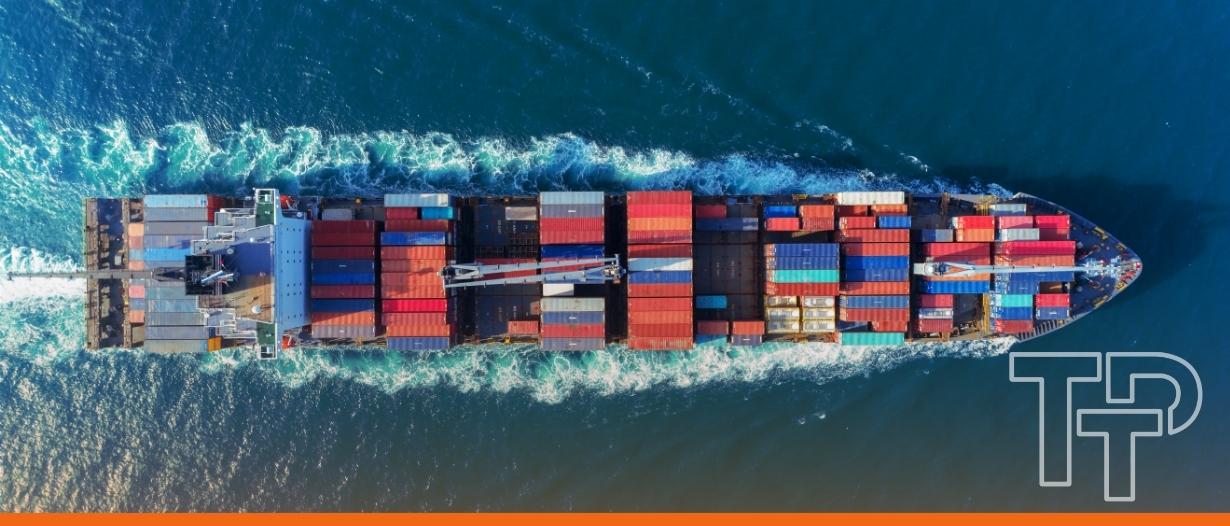VIDEO | Berne Union President: State of the ECA and export finance industry
Yuichiro Akita
May 14, 2025
 Holly Piggott
May 14, 2025
Holly Piggott
May 14, 2025

Tariff volatility has become increasingly prevalent on a global basis as governments respond to trade environments. Preferential trade agreements delineate concessions on most-favoured-nation terms, however, the “MFN” rule established by the World Trade Organization’s (WTO) General Agreement on Tariffs and Trade (GATT) has become eroded to align with reciprocal arrangements or a 10% baseline tariff in the United States.
Whilst nations have responded swiftly to implement bilateral countermeasures – whether preferential, protectionist, or retaliatory – it is the economic actors conducting international sales that are required to take practical measures to secure their own interests.
The ICC have provided additional guidance addressing who bears the responsibility for import tariffs in a new Guidance Note titled ‘Using the Incoterms® 2020 Rules to Manage Tariff Risk in International Trade.’
The ICC has outlined that the use of the appropriate Incoterms® rule can:
Incoterms® Rules for any mode of transport:
| Incoterms® Rule | Export Customs Clearance | Import Customs Clearance | Who Pays Tariffs? |
| EXW (Ex Works) | Buyer | Buyer | Buyer |
| FCA (Free Carrier) | Seller | Buyer | Buyer |
| CPT (Carriage Paid To) | Seller | Buyer | Buyer |
| CIP (Carriage and Insurance Paid To) | Seller | Buyer | Buyer |
| DAP (Delivered at Place) | Seller | Buyer | Buyer |
| DPU (Delivered at Place Unloaded) | Seller | Buyer | Buyer |
| DDP (Delivered Duty Paid) | Seller | Seller | Seller |
Incoterms® Rules for sea and inland waterway transport only:
| Incoterms® Rule | Export Customs Clearance | Import Customs Clearance | Who Pays Tariffs? |
| FAS (Free Alongside Ship) | Seller | Buyer | Buyer |
| FOB (Free On Board) | Seller | Buyer | Buyer |
| CFR (Cost and Freight) | Seller | Buyer | Buyer |
| CIF (Cost, Insurance and Freight) | Seller | Buyer | Buyer |
The briefing was released to assist businesses with the discernment of responsibilities and the mitigation of risk associated with abrupt tariff changes, and to facilitate cross-border trade.
It is notable that the use of Incoterms may not cover every type of transaction, and adaptations of their usage are frequently common in regions that impose value-added tax (VAT), a reclaimable indirect tax for VAT-registered businesses.
For example, many corporations that have invested heavily in business development in overseas markets, where selling into the United Kingdom and the European Union, will seek to bear all the costs related to the shipment, but ask the importer to account for VAT. On this basis, usually a deviation from the Incoterm delivered at place “DAP” will occur. The buyer will act as the consignee and authorise use of their Economic Operator Registration Identification (EORI) number, and account for the reclaimable import VAT. However, within the underlying agreement, the seller will agree to pay for the customs duty and the cost of customs clearance. Companies often alter the delivered duty paid “DDP” Incoterm similarly, which is generally not advisable, as the responsibility for customs compliance between the parties and the broker would lack a clear definition.
Commercial law within the United Kingdom is underpinned by the English common law concept of freedom of contract, subject to certain limitations. Incoterms should be declared on a customs entry when a sale between unrelated parties occurs. The result of adjustments to the usage of Incoterms is that the UK government has recently published updated guidance notes for customs agents on the use of ‘XXX’ + country code followed by a narrative description of the delivery terms given in the contract if no Incoterm is used, or if the Incoterm used does not conform to the eleven international sales terms, published by the International Chamber of Commerce (ICC).
In all scenarios other than DDP it is the responsibility of the buyer to cover the costs of the import tariffs. DDP is unique in that the seller is responsible for all customs duties, indirect taxation, and importation formalities at the destination.
Sellers conducting trade on DDP incoterms seeking to mitigate risk may seek to use another Incoterm, for example, DAP rather than DDP, to ensure that the buyer bears the responsibility for the tariffs imposed by their government.
DDP identifies that the buyer assumes all the risks associated with transportation, delivery to the destination, customs and border compliance, and indirect taxation. Where a shipment is conducted on DDP Incoterms, there may also be heightened risk for the customs agent, as most professional indemnity insurance policies held by customs brokers will only cover direct representation.
Moreover, if the seller does not have a permanent establishment in the importing country, the customs broker will be required to act as an indirect (fiscal) representative. On this basis, the customs agency would also share the responsibility for aspects such as the origin of the goods and the customs valuation methodology. For example, if the origin is declared incorrectly, fraudulently, or there is not sufficient proof of origin, particularly where non-originating materials are incorporated into a product, the customs agency may seek to extend a compliance review of origin.
These steps would have to be taken in anticipation of the proof of origin (supplier declaration, bill of materials, registered exporter codes, and similar) that may be requested within a government audit. The value that the seller charges the buyer for customs duty on a commercial invoice raised on DDP Incoterms should be clearly separated from the value of the goods. On this basis, the customs broker may use the first invoice value, and therefore the seller will not pay more duty than is necessary.
Businesses may wish to conduct a strategic review of the use of Incoterms and limit their exposure by negotiation of an adjustment. If the buyer has more negotiating power than the seller, they may consider requesting the seller to adjust to DDP, whilst monitoring pricing, and vice versa. Where a mid-contract adjustment occurs, it may be necessary to support price renegotiation in the underlying sales contract. It is also advisable for companies to build resilience by clarifying the definition of each party’s roles in supply chain contracts. Clear operational guidance supported by regular internal audits should be provided to logistics, legal and compliance teams to facilitate best practice.

Yuichiro Akita
May 14, 2025
Trade Treasury Payments is the trading name of Trade & Transaction Finance Media Services Ltd (company number: 16228111), incorporated in England and Wales, at 34-35 Clarges St, London W1J 7EJ. TTP is registered as a Data Controller under the ICO: ZB882947. VAT Number: 485 4500 78.
© 2025 Trade Treasury Payments. All Rights Reserved.